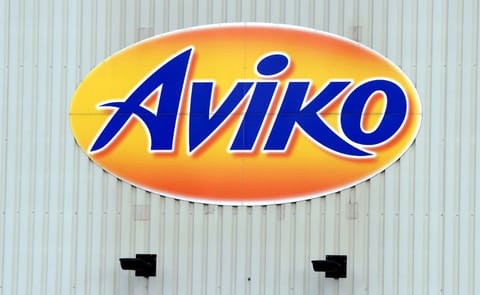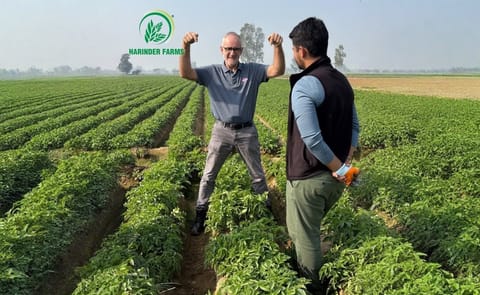Kerry Introduces Acryleast Pro - Next-generation acrylamide - reducing yeast now even more effective
Kerry Introduces Acryleast Pro - Next-generation acrylamide - reducing yeast now even more effective

Kerry, the world’s leading taste and nutrition company, has announced that it had released Acryleast™ Pro, the advanced iteration of the company’s signature acrylamide-reducing non-GMO (non-genetically modified) yeast, Acryleast™.
This second generation of Acryleast, which is available in North America, is the only organic-suitable baker’s yeast that effectively reduces the levels of acrylamide in a wide range of manufactured and organic food products by up to 90%.
It delivers 2.2 times more enzyme activity than the first-generation product, meaning that it is much more effective and cost-efficient in lower doses.
Acrylamide is a long-confirmed neurotoxin found to form in a large range of carbohydrate-rich foods that are heated and cooked (baked, fried, toasted, roasted, etc.) at temperatures above 120°C or 248°F.
Government food safety and health regulators worldwide are increasingly concerned about their citizens’ daily exposure to acrylamide in foods and are enacting more stringent benchmarks and allowable limits designed to reduce exposure by the general population to this neurotoxin and IARC Group 2A probable carcinogen.
Kerry’s latest solution is an advanced yeast product that is clean label friendly. It has no impact on taste or texture, and is highly versatile, requiring little to no change in the manufacturing process.
Acryleast Pro’s core applications include children’s biscuits* and snacks; baby food*; crackers; breads such as toast, rolls and burger buns; fine bakery and crispbread; and soft tortillas, among many others.
It is now available to assist food manufacturers seeking to reduce the presence of acrylamide in many common food products consumed by both adults and children.
Daniel Mendoza, Business Development Director Enzymes at Kerry North America:
Acryleast Pro is the only organic-suitable, fully non-GMO acrylamide-reducing yeast for the US. As a result, it can be used as a processing aid in the production of organic foods such as biscuits, baked goods, crackers, bread and many others without affecting the product’s existing organic status."
"In the US, the product is organic suitable and its use allows for clean labelling, as it can be listed on the ingredients label simply as "yeast."
What is acrylamide? First discovered in foods in 2002 but used carefully as an industrial compound for decades previous to that, acrylamide is a long-confirmed neurotoxin and probable/potential carcinogen found to form in a large range of carbohydrate-rich foods that are heated and cooked (baked, fried, toasted, roasted, etc.) at temperatures above 120°C or 248°F.
What occurs is that traditional manufacturing or home cooking above these temperatures causes a protein called asparagine—naturally present in many carbohydrate-rich foodstuffs (potatoes, rice, wheat, etc.)—to convert to acrylamide.
The longer the cooking process extends, the more acrylamide is produced until all the asparagine is exhausted.
Acryleast Pro’s yeast rapidly degrades asparagine in the product’s pre-mix prior to the start of cooking; this reduces the volume of asparagine available in the final mix that could otherwise be converted to acrylamide during the cooking process.
This second generation of Acryleast, which is available in North America, is the only organic-suitable baker’s yeast that effectively reduces the levels of acrylamide in a wide range of manufactured and organic food products by up to 90%.
It delivers 2.2 times more enzyme activity than the first-generation product, meaning that it is much more effective and cost-efficient in lower doses.
Acrylamide is a long-confirmed neurotoxin found to form in a large range of carbohydrate-rich foods that are heated and cooked (baked, fried, toasted, roasted, etc.) at temperatures above 120°C or 248°F.
Government food safety and health regulators worldwide are increasingly concerned about their citizens’ daily exposure to acrylamide in foods and are enacting more stringent benchmarks and allowable limits designed to reduce exposure by the general population to this neurotoxin and IARC Group 2A probable carcinogen.
Kerry’s latest solution is an advanced yeast product that is clean label friendly. It has no impact on taste or texture, and is highly versatile, requiring little to no change in the manufacturing process.
Acryleast Pro’s core applications include children’s biscuits* and snacks; baby food*; crackers; breads such as toast, rolls and burger buns; fine bakery and crispbread; and soft tortillas, among many others.
It is now available to assist food manufacturers seeking to reduce the presence of acrylamide in many common food products consumed by both adults and children.
Daniel Mendoza, Business Development Director Enzymes at Kerry North America:
"Acryleast is already a proven, acrylamide-reducing clean label solution for food manufacturers, and the second-generation Acryleast Pro has now raised the bar even higher by being more than twice as powerful as the original product."Organic suitable in the US
"It impressively delivers up to 90% reductions in acrylamide at a lower, more cost-effective dose rate."
"Food manufacturers are under rising pressure from governments and consumers groups to lower the amount of acrylamide created in their products."
"Acryleast Pro is now the best, most consistent solution to address this important food industry safety problem without disrupting either the manufacturing process or the ability to offer a clean label."
"We look forward to partnering with our customer to create new, great-tasting products using this technology."
Acryleast Pro is the only organic-suitable, fully non-GMO acrylamide-reducing yeast for the US. As a result, it can be used as a processing aid in the production of organic foods such as biscuits, baked goods, crackers, bread and many others without affecting the product’s existing organic status."
"In the US, the product is organic suitable and its use allows for clean labelling, as it can be listed on the ingredients label simply as "yeast."
What is acrylamide? First discovered in foods in 2002 but used carefully as an industrial compound for decades previous to that, acrylamide is a long-confirmed neurotoxin and probable/potential carcinogen found to form in a large range of carbohydrate-rich foods that are heated and cooked (baked, fried, toasted, roasted, etc.) at temperatures above 120°C or 248°F.
What occurs is that traditional manufacturing or home cooking above these temperatures causes a protein called asparagine—naturally present in many carbohydrate-rich foodstuffs (potatoes, rice, wheat, etc.)—to convert to acrylamide.
The longer the cooking process extends, the more acrylamide is produced until all the asparagine is exhausted.
Acryleast Pro’s yeast rapidly degrades asparagine in the product’s pre-mix prior to the start of cooking; this reduces the volume of asparagine available in the final mix that could otherwise be converted to acrylamide during the cooking process.
Like to receive news like this by email? Join and Subscribe!
Get the latest potato industry news straight to your WhatsApp. Join the PotatoPro WhatsApp Community!
Uitgelichte Bedrijven
Sponsored Content
Sponsored Content
Sponsored Content
Sponsored Content











